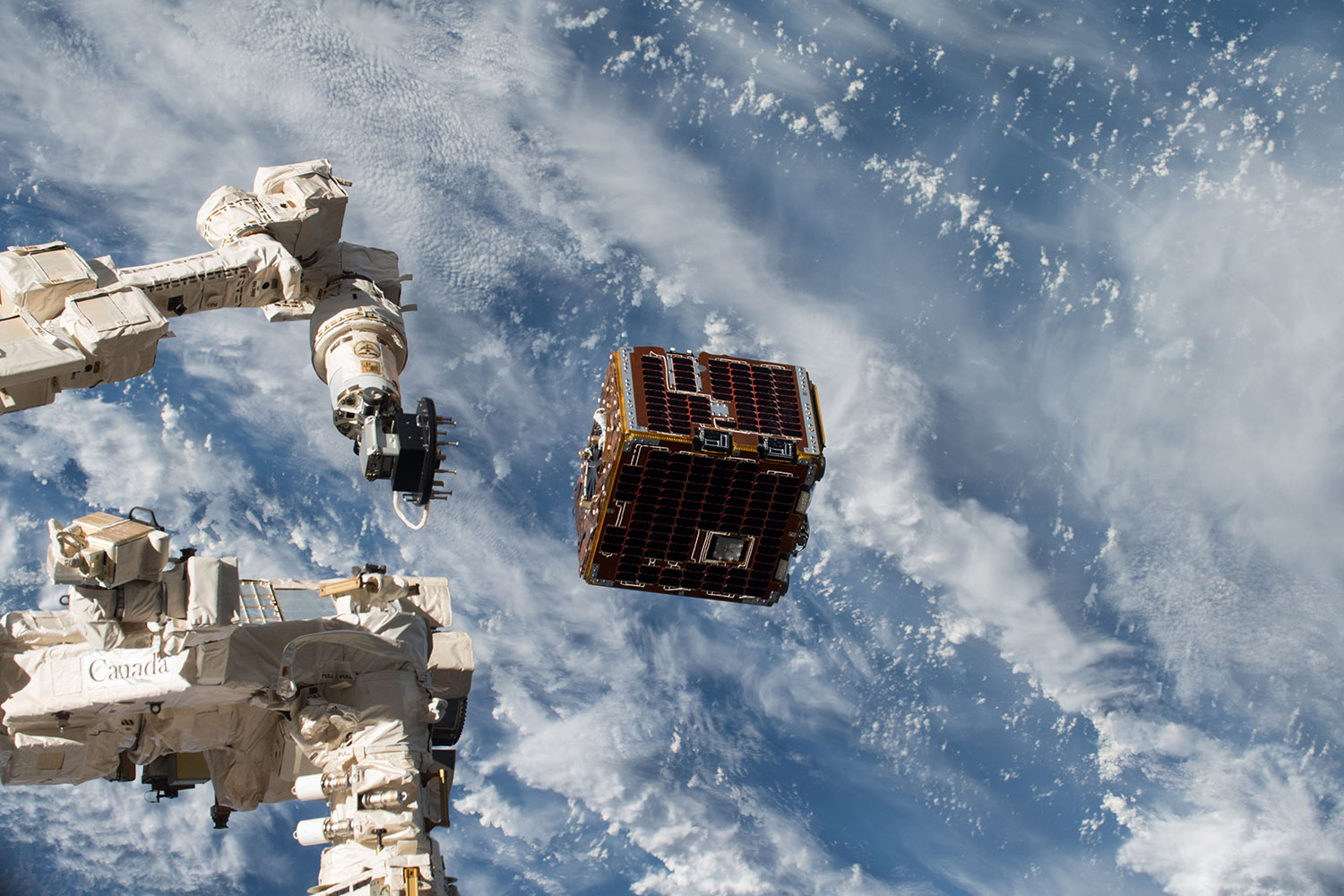“SmartSpace” successful at innovation competition Ideas for future communication via the Internet of Things
Whether it is Smart Home, intelligent clothes or vehicles: Today, many objects of our everyday life are already networked via the Internet. In the future, the so-called Internet of Things (IoT) will become increasingly important. The prerequisite for this is a functioning data connection, even in remote areas of the world. Under the title “SmartSpace”, the Institute for Space Systems of the Technische Universität Braunschweig has developed ideas on what the infrastructure of the IoT could look like in the future. With this project, they won the INNOspace Masters Innovation Competition of the German Aerospace Center (DLR).
Outside metropolitan areas, existing mobile communications networks are often inadequate for the use of the Internet of Things. However, a functioning data connection is a prerequisite for the use of this future technology. Under current conditions, the transmission of data between IoT devices and satellites is uneconomical and complex because the devices only have small antennas and have to operate with low power consumption and minimal data throughput. The Institute of Space Systems submitted an innovative idea for solving the problem to the DLR INNOspace Masters 2018/19 competition. With this idea, they won the prize in the “DLR Space Management Challenge” category, which focuses on the research and development stage.

The SmartSpace modules are designed to send data from IoT devices to a higher-level satellite backbone. (Symbol picture) Picture credits: Drew Feustel/NASA
“Thanks to the award, we are now able to make a funding proposal to the DFG for our project,” rejoices Professor Enrico Stoll, Director of the Institute of Space Systems at the TU Braunschweig. The SmartSpace concept involves dedicated communication modules on Earth and in space in order to enable data acquisition and transmission. SmartSpace modules are intended to serve as data buffers for several IoT devices and their applications. They send the collected data to a superior satellite backbone. Thus an own ground station is no longer necessary. SmartSpace shall also be possible in remote areas and large infrastructures by using the intermediary SmartSpace network as a link.
“Space Moves!”
A total of 253 participants from companies, start-ups, universities and research institutions from 17 European countries submitted their project outlines. Twelve of them entered the final round of the innovation competition. Under the motto “Space Moves!”, the Space Management of the German Aerospace Center (DLR) searched for new ideas and concepts offering innovative solutions to current problems in the space industry. At the the fourth INNOspace Masters competition prizes were awarded in four categories. The overall winner was ESDA-Axiotherm GmbH with a new polymer compound.
